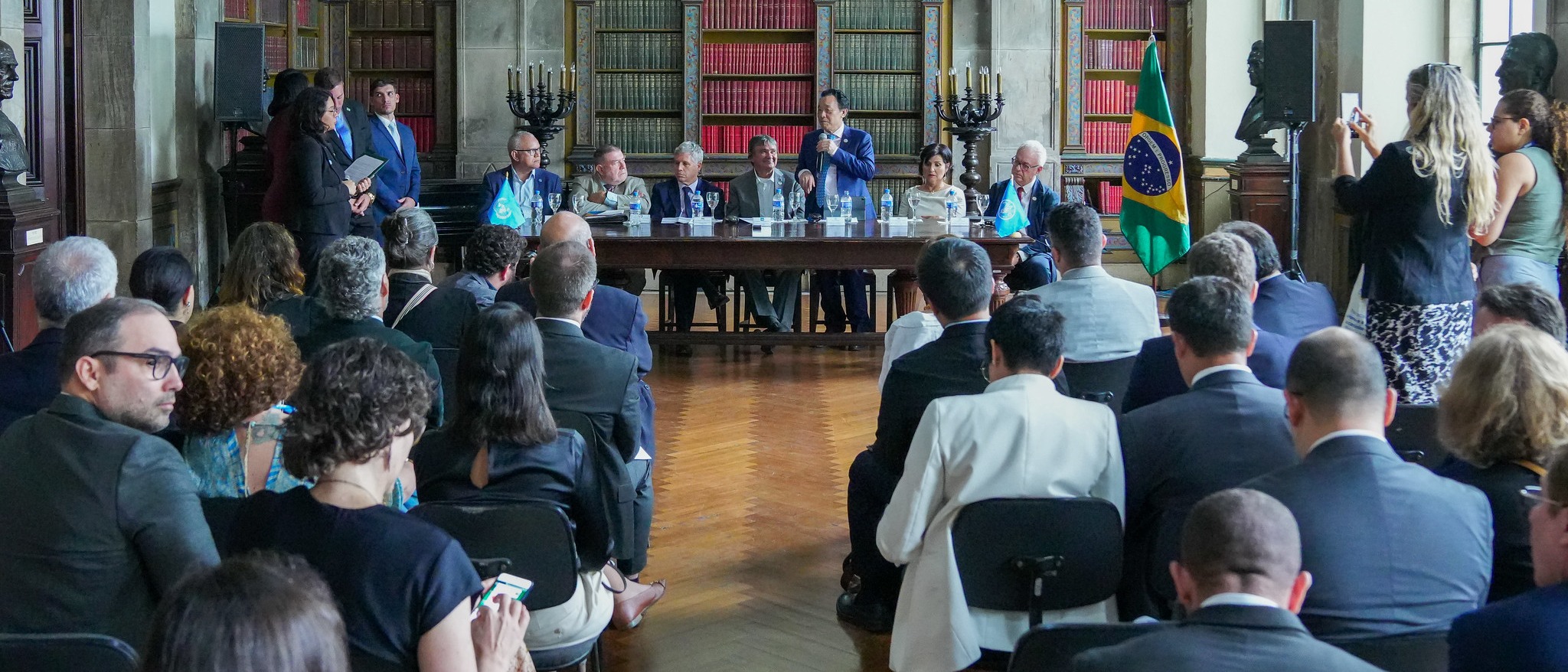Government of Brazil and FAO sign alliance to support vulnerable populations in urban and peri-urban areas of Latin America and the Caribbean
The project in the framework of the Brazil-FAO International Cooperation Program aims to enhance food security and reduce poverty in the region.

©FAO/Max Valencia
The Food and Agriculture Organization of the United Nations (FAO), the Brazilian Cooperation Agency of the Ministry of Foreign Affairs (ABC/MRE), and Brazil’s Ministry of Social Development, Family and Fight Against Hunger (MDS) signed the project Strengthening the regional agenda of food systems for the urban-rural continuum in Latin America and the Caribbean.
Data from the Economic Commission for Latin America and the Caribbean (ECLAC) indicates that 81% of the region’s population lives in urban areas, posing challenges for access to healthy food and the inclusion of family farmers in value chains. Therefore, this project seeks to enhance food security and reduce poverty among the most vulnerable populations in urban and peri-urban areas of cities in Latin America and the Caribbean. It also aims to promote urban food systems that are more efficient, inclusive, sustainable, and resilient.
South-South Cooperation for Sustainable Food Systems
This trilateral South-South cooperation initiative was signed by FAO’s Assistant Director-General and Regional Representative for Latin America and the Caribbean, Mario Lubetkin, and the Director of the Brazilian Cooperation Agency (ABC), Ambassador Ruy Pereira. The ceremony also featured the participation of FAO Director-General Qu Dongyu; Brazil’s Minister of Social Development, Family and Fight Against Hunger (MDS), Wellington Dias; Brazil’s Minister of Agrarian Development and Family Farming (MDA), Paulo Teixeira; Brazil’s National Secretary for Artisanal Fisheries, Cristiano Ramalho; and Chief Ambassador of the Ministry of Foreign Affairs Representation Office (MRE) in Rio de Janeiro, Márcia Maro.
FAO Director-General Qu Dongyu emphasized the importance of South-South and Triangular Cooperation as a flexible mechanism for strengthening international collaboration. He also celebrated the creation of the Global Alliance Against Hunger and Poverty. “Let’s work together to make this great initiative a major benefit for people,” said Qu Dongyu.
FAO Assistant Director-General Mario Lubetkin highlighted Brazil’s key role in advancing food and nutrition security. “Brazil has been fundamental in this journey. Through this project, we will develop strategies to integrate small farmers into the context of urban expansion and promote access to healthy food for the population,” he stated.
MDS Minister Wellington Dias underscored the critical role of strengthening food systems “to achieve urban-rural balance, making better use of urban spaces and their peripheries, enabling progress similar to what Brazil and other countries have already achieved in improving income conditions for rural populations,” he said.
Ruy Pereira, Director of ABC, highlighted the importance of cooperation over the past decades, “which has become a key element for Brazil’s external projection and the functioning of the United Nations. The South-South cooperation model developed by Brazil is based on horizontality, solidarity, unconditionality, knowledge exchange, and shared governance,” he noted.
